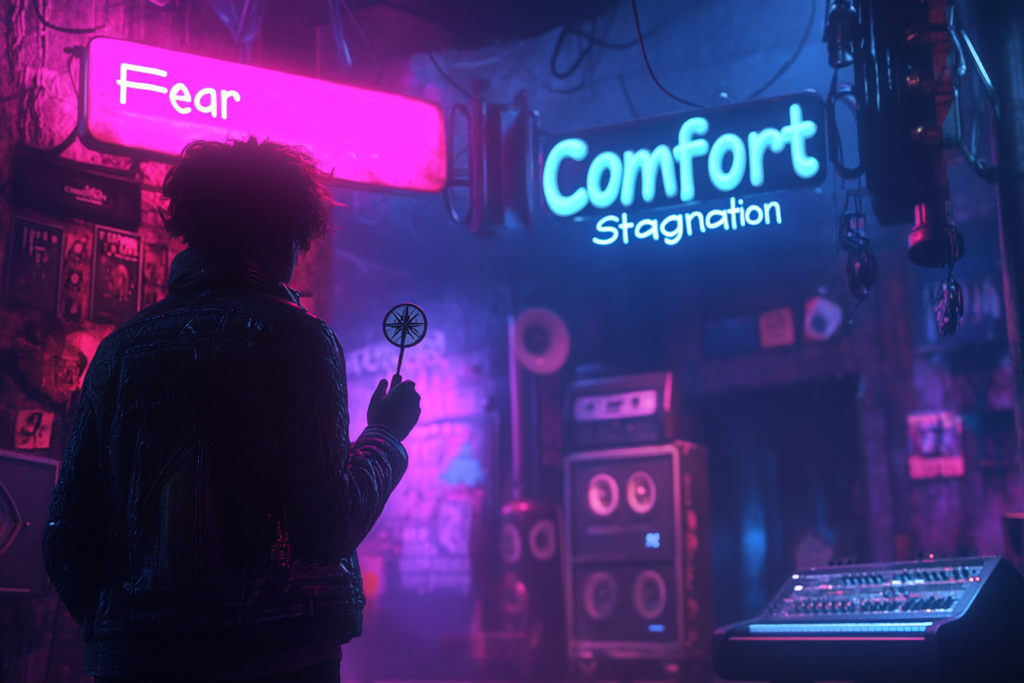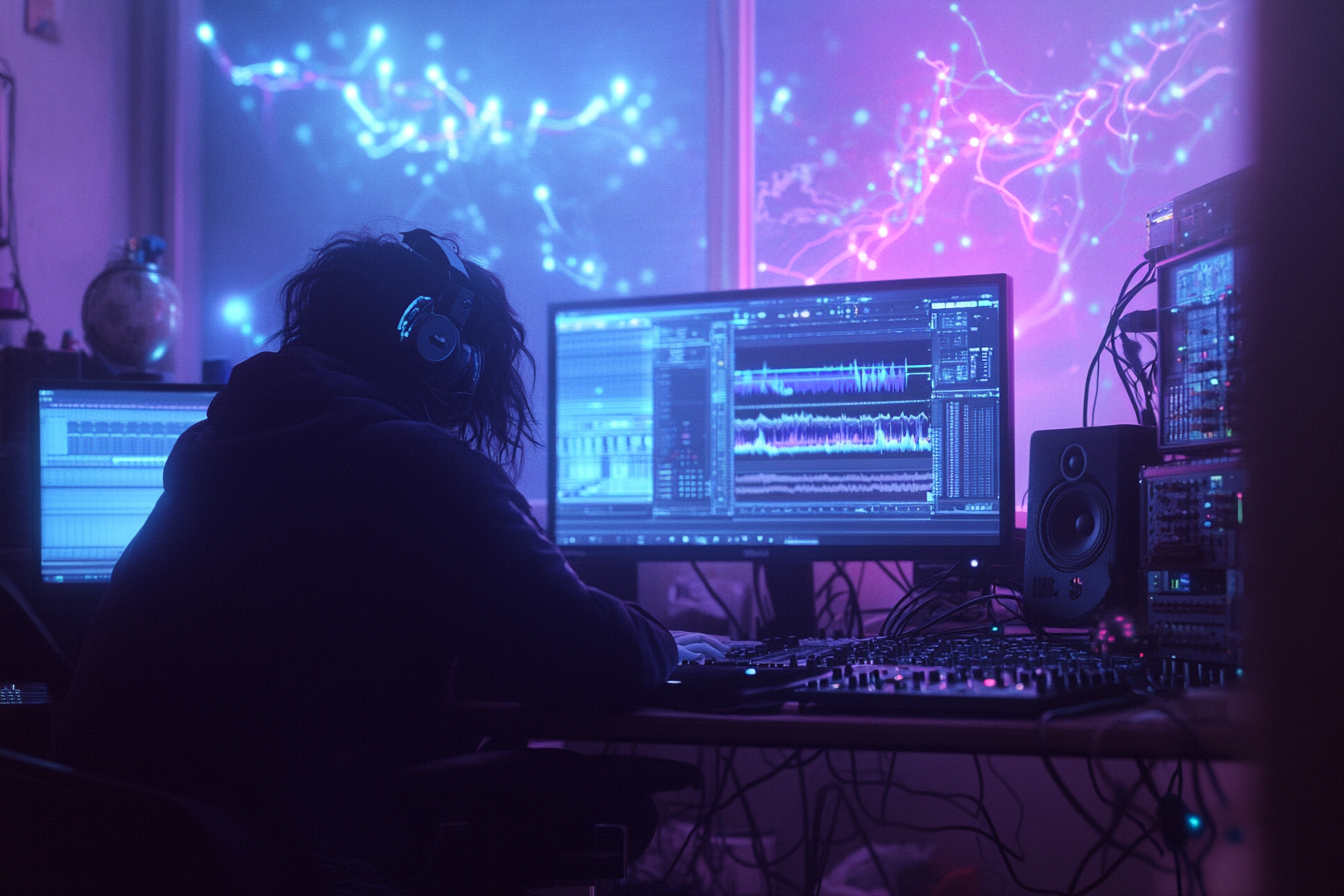As artists and human beings, our natural instinct is to move away from fear. It’s a survival mechanism that has served us well since the days of our cavemen ancestors. But in today’s world, most of the things we fear aren’t actually dangerous – they’re just uncomfortable. Understanding how fear productivity influences our actions can help us navigate these challenges. Embracing fear productivity allows us to transform our fears into powerful creative forces.
Fear is often seen as a negative force in our lives. However, it can actually serve as a catalyst for creativity. Many successful artists have shared stories about how they transformed their fears into powerful songs and performances. For example, singer-songwriter Adele has spoken candidly about how her fear of rejection fueled her songwriting process, resulting in some of the most emotive and relatable music of our time. Embracing fear can lead to breakthroughs in your art, allowing you to express your innermost feelings and connect with your audience on a deeper level.
Fear productivity plays a vital role in how we approach our art. By recognizing this, we can harness its power to fuel our creativity.
This fear productivity can lead to collaborations that change the course of an artist’s career. Each instance of facing fear cultivates fear productivity, enhancing resilience and creativity. By recognizing the role of fear productivity, many artists find their best work emerges from vulnerability. Understanding fear productivity can help you take steps towards overcoming your fears. Journaling about your experiences with fear productivity can illuminate your growth journey. By trusting fear productivity, artists learn to navigate their creative paths with clarity. Recognizing fear productivity helps shift perspectives and embrace challenges. By focusing on fear productivity, you can motivate yourself to take the necessary steps towards success.
When you allow fear to guide you, you open yourself up to opportunities that you might have otherwise shied away from. Take the example of many indie artists who, despite their initial trepidation, reach out to established names in the industry for collaborations. This often leads to unexpected partnerships that can catapult their careers. By leaning into the discomfort that comes with such initiatives, artists not only grow personally but also expand their creative horizons. Think about the fear of rejection – it can be a stepping stone to creating something beautiful and unique.
Finding the strength to confront fear can be likened to building muscle in the gym. Each time you face something that intimidates you – like performing live for the first time or showcasing your work to industry experts – you’re essentially lifting a weight that builds your resilience. This analogy of mental muscle is crucial: just as physical strength grows with practice, so does your ability to handle fear. Consider the story of a young artist who, after multiple attempts at open mic nights, gained the confidence to produce their own music. This growth came from repeatedly facing their fears and using every performance as a learning experience, leading to a breakthrough moment that finally resonated with a larger audience.
Visualize the consequences of inaction. Picture yourself a year from now, wondering what could have been if you had embraced your fears instead of letting them paralyze you. The potential for regret can often be more daunting than the fear itself. Many artists find that their best work comes from a place of vulnerability, where they allow their insecurities to inform their art. By not pushing through fear, you miss out on the chance to transform your experiences into something that resonates with others.
Taking action in the face of fear requires a strategic approach. Start by identifying your fear triggers – whether it’s public speaking, sharing your music, or networking with industry professionals. Once you have pinpointed these triggers, create a series of small, manageable steps that lead you toward confronting them. For instance, if reaching out to a mentor is daunting, perhaps begin by engaging with them on social media or attending one of their events. Building up to the larger goal will help ease the fear and make the experience less overwhelming.
As you embark on this journey of embracing fear, consider keeping a journal to track your progress. Documenting your thoughts and feelings can provide insight into how fear has shaped your experiences. Reflecting on these entries can also serve as motivation, showcasing how far you’ve come and the strides you’ve made in your music career. Additionally, sharing your journey with fellow artists can foster a supportive community where everyone can encourage one another to take those crucial steps towards their goals.
That’s why successful music producers have learned to trust their fear and use it as a compass. They know that if something scares them, it’s probably important and worth pursuing. Whether it’s sending out a track for feedback or reaching out to a famous producer for a collaboration, the fear itself is a sign that it matters. Embracing fear productivity can turn anxiety into a powerful tool for growth.
So how can you develop this mental muscle and start using fear to your advantage? It’s simple: the fear of NOT doing something has to be greater than the fear of doing it. By recognizing fear productivity, you can shift your perspective and embrace the opportunities that lie ahead.
Imagine where you’ll be in 12 months if you don’t take action. Will you be in the same place, stuck in a rut and resenting yourself for wasting time and money on music production? Or will you have pushed through your fears and made meaningful progress towards your goals?
Understanding Fear Productivity in Music
The key is to take immediate action before you can overthink it. Determine the one thing you’re most scared of or putting off (you already know what it is) and start the first step TODAY. Even if you’re super busy, commit to taking action on a specific day and time in your calendar.
Remember: feel the fear productivity and do it anyway. Use fear as your compass to guide you towards growth, both in music production and in life. Take that first step today and witness how embracing fear productivity transforms your mindset and progress.


